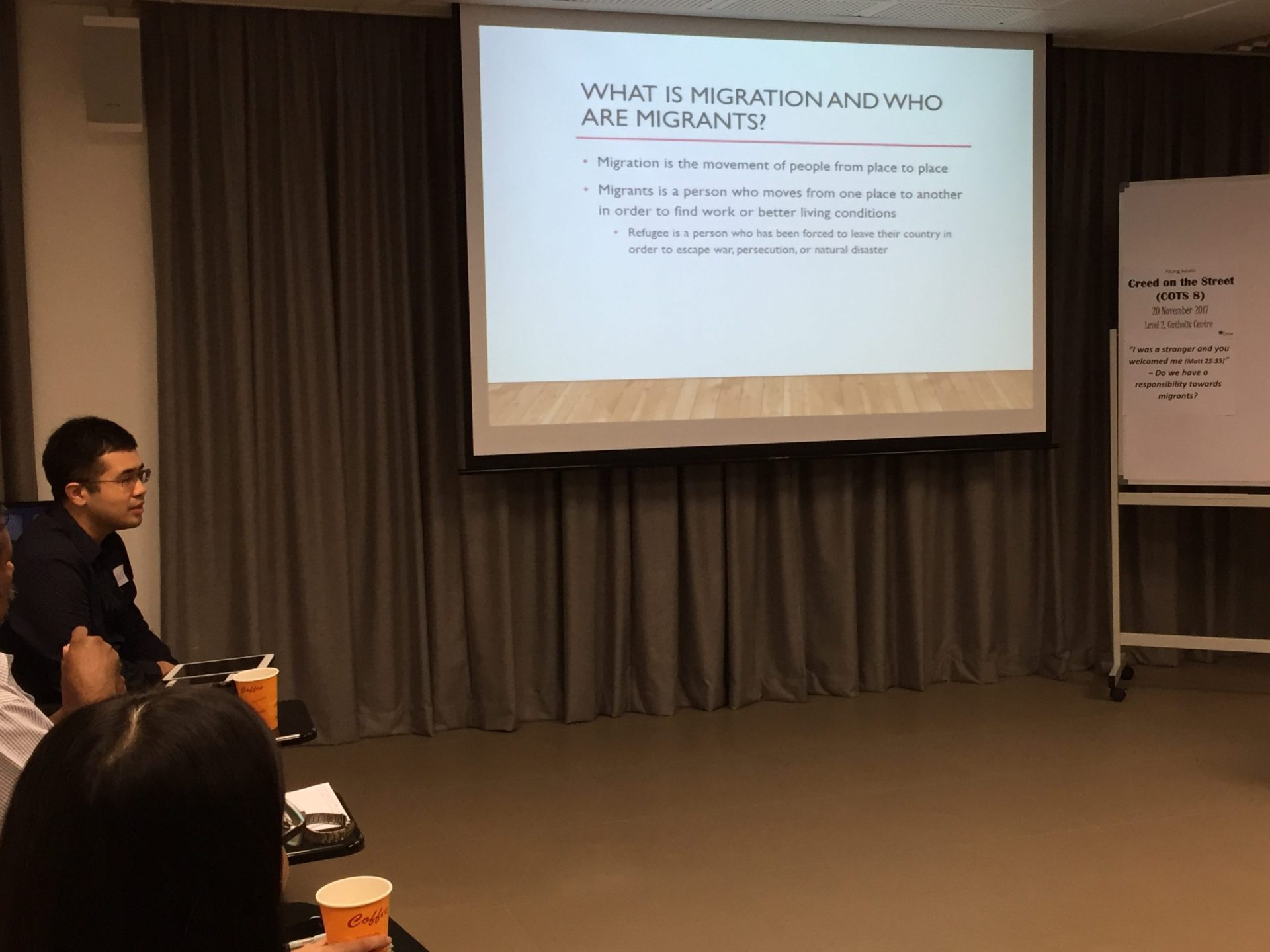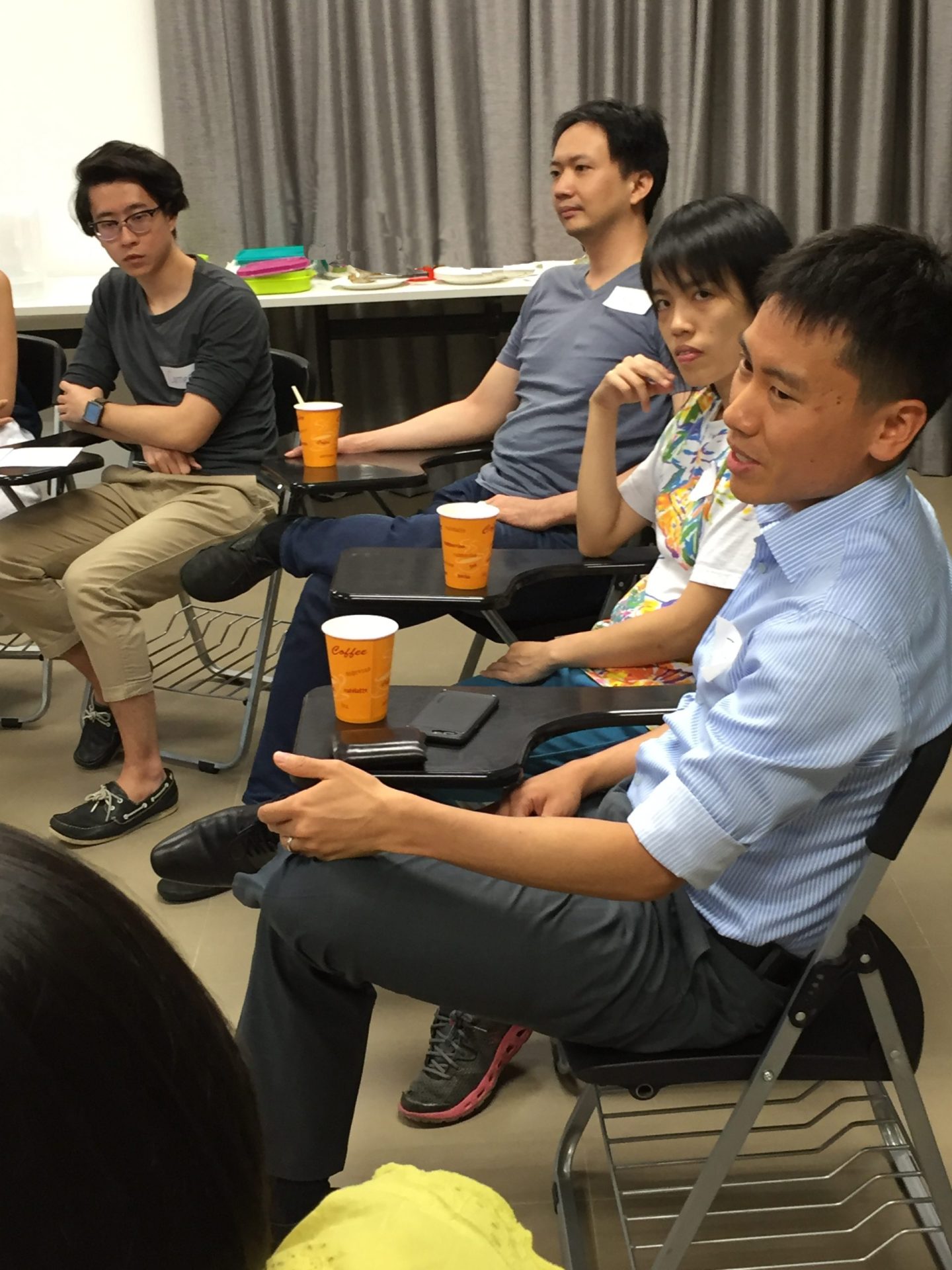No products in the cart.
Do we have a responsibility towards migrants?

On 20 Nov 2017, 13 young adults met at the Catholic Centre to reflect on their encounters with migrants in Singapore, and share their views on how they could respond to the needs of migrants in our community.
“I was a stranger and you welcomed me” – Matthew 25:35
This session was part of series titled “Creed on the Street”, organised by Caritas Singapore Young Adults, to bring young people together for conversations which lend a perspective of the Catholic faith on social issues.

Several participants shared their personal experiences with foreign domestic workers (FDWs). Participants recognised that many families in Singapore depend heavily on FDWs for caregiving in the home, but the current model of employment often means that these ladies inadvertently endure long working hours, limited privacy (living in their employer’s home), and social isolation. Loneliness is a common struggle as they have left their families and loved ones behind to come to a foreign land for work. Although the situation has improved, with employers being required to provide one rest day a week for their FDWs, it is still less than ideal.
The discussion then turned towards concern for the welfare of foreign workers in Singapore – their harsh working and living conditions, long hours, low wages, and limited legal rights. Participants discussed the challenges involved in addressing these issues, such as the impact on cost of living in Singapore, and potential shifts in lifestyles and habits which would need to take place, if we were to be less dependent on foreign labour.
These questions kept coming up: Do we see the face of God in the migrants we encounter? How are we called to respond?
Overall, participants agreed that we can and should do more, through ground-up initiatives, to support migrants in Singapore. Areas of concern include pastoral care for migrant workers to remain faithful to their families back home, overcoming social segregation between migrants and locals. Education was also identified as a powerful tool for changing mindsets and attitudes – to cultivate a spirit of inclusiveness in our children.
